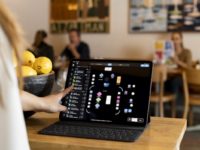Australia is famed for the quality and vibrancy of its hospitality industry; a sector built upon a foundation of tens of thousands of small businesses nationwide. In fact, of the 1,000,000+ Australians employed in the accommodation and food service industries, almost half are in small businesses, equating to almost two per cent of the entire population.
These hospitality businesses represent some of the most innovative, advanced and dynamic businesses in Australia. They have faced extreme – in some cases existential – challenges over the last 12 months. However, they’re evolving at an extraordinary pace, using digital transformation to build the foundations that could see them lead by example for years to come.
Digital transformation of a once-traditional industry
While digital transformation is typically associated with start-ups, creative industries and the retail sector, it’s empowering the once-traditional hospitality industry, too. Technology today is helping the smallest of hospitality businesses – from family-run cafes in Darwin to local pubs in Hobart – create operations that marry the data-driven capabilities of global businesses with the heart and soul of neighbourhood venues.
SevenRooms research recently found that one in three Australians thought restaurants should not reopen unless they were using technology to protect the health of guests. Once the domain of only the biggest of businesses, small hospitality businesses now have access to technology that not only keeps guests safe, but that creates meaningful, memorable, and exceptional experiences that turn one-off patrons into regulars.
QR codes, both to check-in and order from a smartphone, have become commonplace across much of the country. But smaller venues are now using even more sophisticated, data-driven technologies to run their businesses. These guest experience platforms, and the data they collect, span every operation within a business, from reservation and table management to online ordering and marketing automation; replacing paper floor plans, registers and spreadsheets. Just as omnichannel has become a buzzword for retailers, it has become crucial for hospitality too. Technology is enabling hospitality businesses to deeply understand guests — whether they’re dining out or ordering in.
Turning data into meaningful relationships
The collection of approved data helps hospitality operators develop a 360-degree picture of every guest. And those same deep insights can be used by businesses to create hyper-personalised experiences that patrons come back for time and time again. As important as the quality of food or drink is in incentivising guests, so too is the experience and the appeal of being understood by the business.
Hospitality is a transient industry with high turnover. When staff leave, it can be difficult for a venue to provide consistent experiences to their loyal customers, especially if guest information was mostly stored in their heads. Now, with the right technology in place collecting data from across the on- and off-premise guest journey, venues can build customer profiles that include everything from their favourite dishes and allergies to their spending habits and the regularity of their visits.
For example, if a guest visits a restaurant every three months and orders the same meal, a venue can identify that, and send them a tailored discount on that dish or a free wine pairing the next time they visit. That type of service can turn a quarterly visitor into a monthly regular. It also means that even a new staff member can have a detailed understanding of every guest on the floor; who is regular, who tips well and even who is gluten-free.
In challenging times, loyalty is one of the greatest competitive advantages a business can leverage. Today, through technology, smaller hospitality businesses are building the functionalities of bigger businesses to incentivise loyalty and increase revenue, without losing the heart, soul and individuality that Australians love in small businesses.
Paul Hadida, General Manager – Australia, SevenRooms















